Let’s be honest: not every music biopic is a cinematic masterpiece. But some films genuinely capture the spirit of an artist or a musical moment in a way that’s both entertaining and enlightening. Whether you’re a die-hard fan or just someone who appreciates a good music story, certain biopics manage to do more than just rehash Wikipedia facts—they give you a real glimpse into the world behind the music.
This isn’t about finding Oscar-worthy performances or perfectly crafted narratives. It’s about finding those movies that, despite their flaws, offer something special for music lovers. Some shine a light on overlooked stories, others capture the energy of a particular scene, and a few just have that magical combination of great music and compelling storytelling.
If you’re the type of music fan who loves diving deeper into the context of your favorite tunes—understanding the person behind the playlist—these biopics are worth your time. I’ve curated a list that spans genres, from post-punk to classical, from jazz to hip-hop, each offering a unique window into the lives of musicians who’ve shaped our cultural landscape.
So grab some popcorn, queue up these films, and get ready to see your favorite music in a whole new light.
Soul: Ray (2004)

Ray offers a nuanced look at Ray Charles as one of the critical architects of soul music. The movie traces his musical journey, breaking down barriers between gospel, blues, and R&B. Charles pushed musical boundaries by transforming the emotional and spiritual intensity of gospel into a secular musical language that spoke to deeper human experiences.
Gospel music was considered holy ground—a sacred form of expression deeply rooted in church traditions. By adapting gospel’s passionate vocal techniques and musical structures to secular love songs, Charles was committing what some considered a musical sacrilege.
The film showcases how Charles’ music broke down barriers between genres and races. Ray highlights his courageous stand against segregation, portraying his refusal to perform for segregated audiences in Georgia. This pivotal moment not only advanced civil rights but also united people through the universal language of music.
Classical: Amadeus (1984)
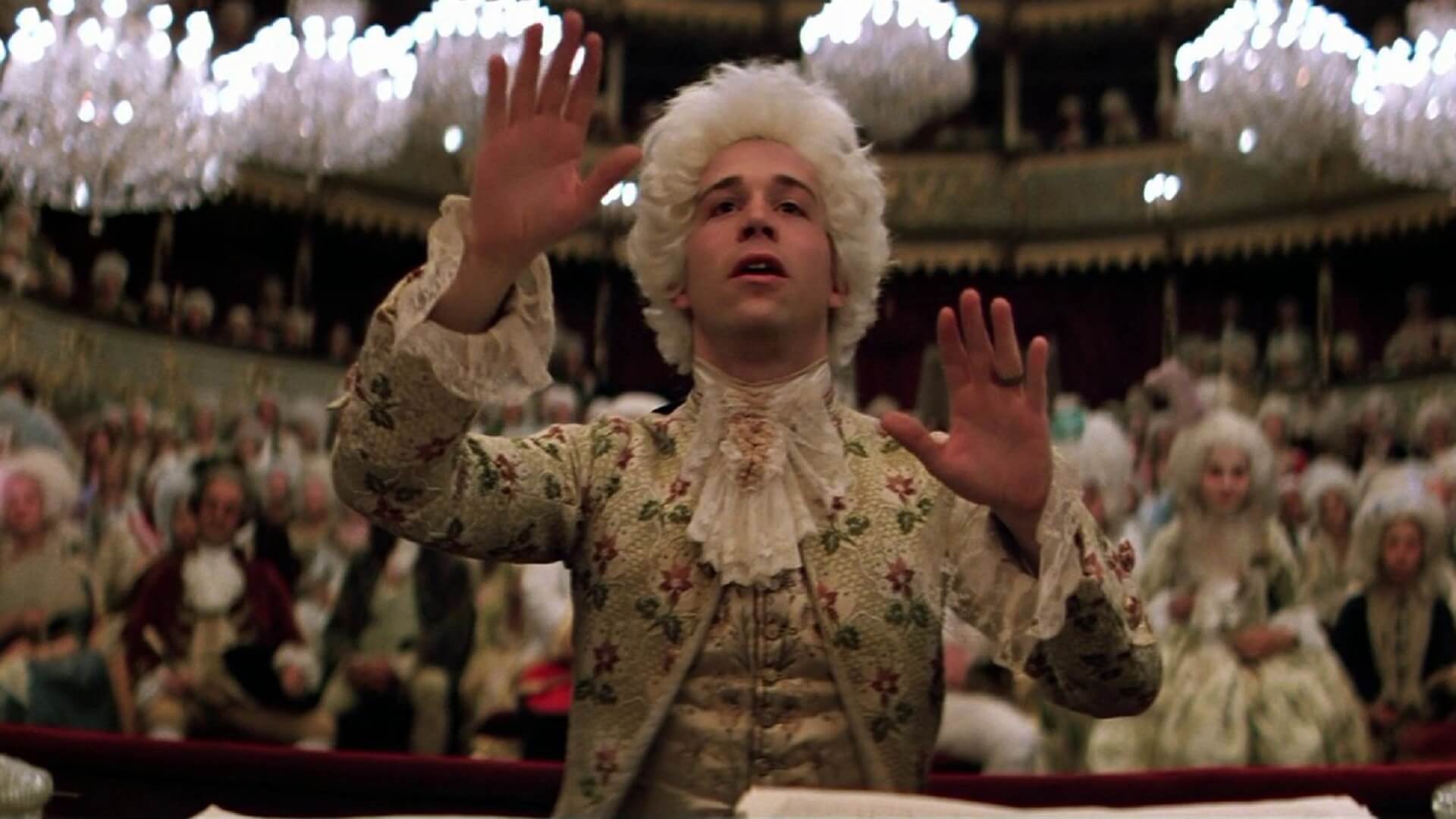
Forget stuffy concert halls and powdered wigs—Amadeus reveals classical music as a world of drama, rivalry, and pure human passion. This isn’t your typical historical biopic; it’s a wild ride through the competitive landscape of 18th-century musical genius.
The film demystifies classical music by showing it as a cutthroat professional world, not just a realm of pristine perfection. Mozart isn’t presented as an untouchable genius, but as a brilliant, sometimes crude young artist navigating a system that both worshipped and feared innovation.
What truly sets Amadeus apart is how it explores classical music as a complex social and artistic ecosystem. Through Salieri’s perspective, we see the genre as a battlefield of talent, politics, and personal ambition. The movie reveals classical composition as a high-stakes game where creativity constantly battles against tradition and institutional control.
Hip Hop: Straight Outta Compton (2015)

If you want to understand how hip hop became more than just music, Straight Outta Compton is your ultimate guide. This isn’t just an origin story; it’s a raw exploration of how rap emerged as a powerful voice for marginalized communities in late 1980s Compton. The film peels back the layers of economic desperation that shaped N.W.A’s origin.
It reveals how the genre became an economic lifeline for young men with few other options and how creativity became their escape route from generational poverty. Each track becomes a potential ticket out—a way to transform street knowledge into cultural capital.
O’Shea Jackson Jr., Corey Hawkins, and Jason Mitchell capture the hunger of young men seeing music as their most viable path forward. Straight Outta Compton demonstrates how a genre emerged not just from musical talent, but from the raw necessity of economic survival.
Country: I Walk the Line (2005)
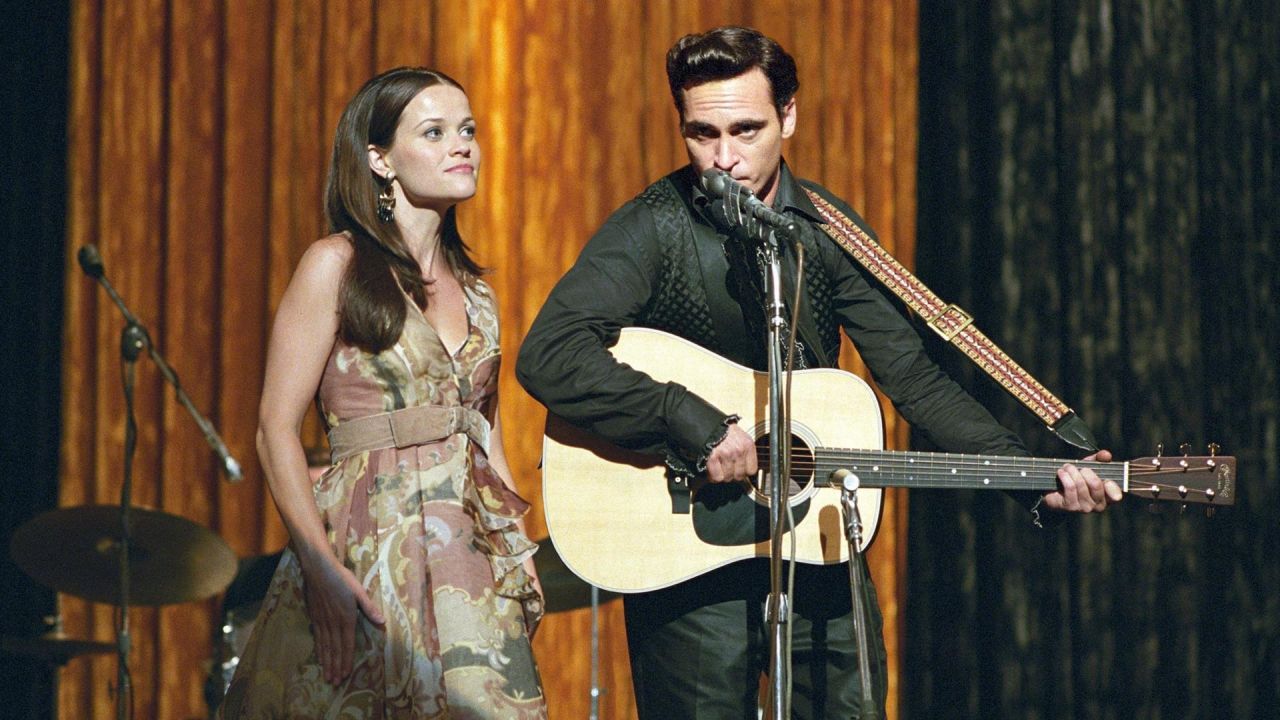
Country music has always been about telling hard truths, and Johnny Cash epitomized that spirit. I Walk the Line shows how the genre emerged from the economic margins, transforming personal pain into universal storytelling. The film reveals country not as a simple genre, but as a complex narrative of American struggle, redemption, and survival.
One of the most powerful scenes in the movie recreates the recording of Cash’s iconic live album at Folsom Prison. This pivotal moment showcases Cash’s unique connection with his audience, as Joaquin Phoenix embodies the raw energy and authenticity of the Man in Black performing for inmates.
This film offers a glimpse into the life of a complex man whose songs became anthems for countless fans. Cash emerged as an artist who used music to speak to the complexities of American identity that went far beyond the traditional country narratives of his time.
Rock: Love & Mercy (2014)

Forget the typical rock star narrative—Love & Mercy is a raw exploration of creativity, mental health, and the high cost of musical innovation. The film reveals rock music not as a glamorous lifestyle, but as a complex psychological landscape where genius and struggle intersect.
By splitting Brian Wilson’s story between two timelines, the movie shows rock as an evolving art form driven by personal transformation. Paul Dano captures Wilson during The Beach Boys’ creative peak, revealing how rock was becoming a canvas for radical experimentation. John Cusack’s portrayal of the older Wilson demonstrates the personal toll of that artistic ambition.
Wilson’s journey reveals how musical innovation often comes from a place of deep personal disruption. Love & Mercy transforms our understanding of rock music from a genre of rebellion to a nuanced exploration of artistic vulnerability. It’s less about the hits and more about the human cost of musical revolution—showing how creativity often emerges from personal struggle.
Jazz : Bird (1988)

If you’re intrigued by the complex world of jazz, Bird is a must-watch, unraveling the story of saxophonist Charlie Parker. Through Forest Whitaker’s electrifying performance, viewers experience the dizzying highs of musical innovation and the crushing lows of personal demons.
The non-linear narrative echoes Parker’s revolutionary style. The soundtrack, featuring Parker’s original solos seamlessly integrated with modern musicians, showcases jazz’s timeless nature. The film explores how Parker’s lightning-fast improvisations and harmonic complexities revolutionized jazz, pushing the boundaries of what was musically possible.
Bird delves deep into the jazz ethos, portraying the genre as more than music – it’s a lifestyle, a rebellion, and a constant push against artistic limits. By intertwining Parker’s genius with his struggles, this movie illustrates how jazz often emerges from pain, transforming personal turmoil into transcendent art.
Post-Punk: Control (2007)

Control plunges viewers into the stark, monochromatic world of post-punk, mirroring the genre’s raw, stripped-down aesthetic. This biopic of Ian Curtis, Joy Division’s enigmatic frontman, is as haunting and intense as the music it celebrates.
Director Anton Corbijn, known for his iconic rock photography, brings a visual style that perfectly captures the bleak beauty of Manchester’s post-industrial landscape – the birthplace of Joy Division’s revolutionary sound. Through Curtis’s story, we see how post-punk emerged as a more introspective, experimental genre.
Control doesn’t just showcase Joy Division’s music; it dissects the cultural and personal forces that shaped it. By focusing on Curtis’s epilepsy and personal struggles, the film delves into themes of alienation, depression, and the search for meaning – all hallmarks of the post-punk movement.
Chicano Rock: La Bamba (1987)
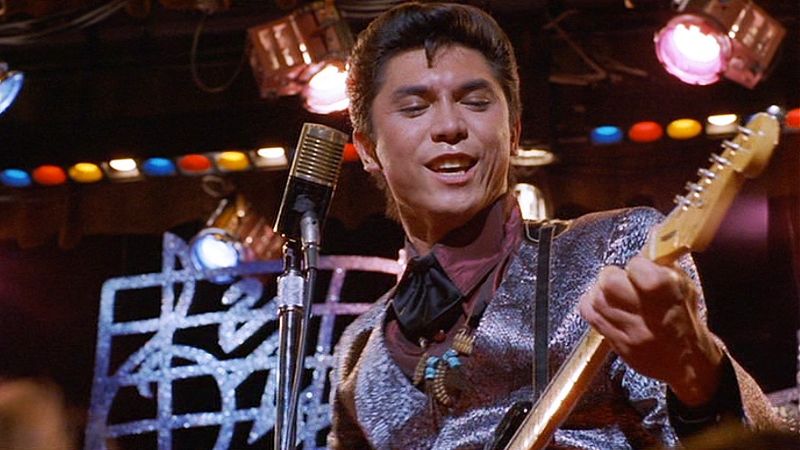
La Bamba explodes onto the screen as a vibrant celebration of Chicano rock, using Ritchie Valens’ meteoric rise as a lens to explore the birth of a genre. This film immerses viewers in the cultural fusion that defined his music.
Lou Diamond Phillips’ portrayal of Valens truly embodies the young musician’s passion and the cultural tightrope he walked. The film delves deep into how Valens’ music, especially his groundbreaking hit “La Bamba,” became a bridge between cultures, blending the infectious rhythms of rock with the soul of Mexican folk music.
La Bamba explores the broader landscape of Chicano culture in America, showcasing how music became a powerful tool for cultural expression and integration. The film’s attention to period detail and its pulsating soundtrack transport viewers to a moment in music history, when the sounds of different worlds collided to create something entirely new.
Folk-Rock: I’m Not There (2007)
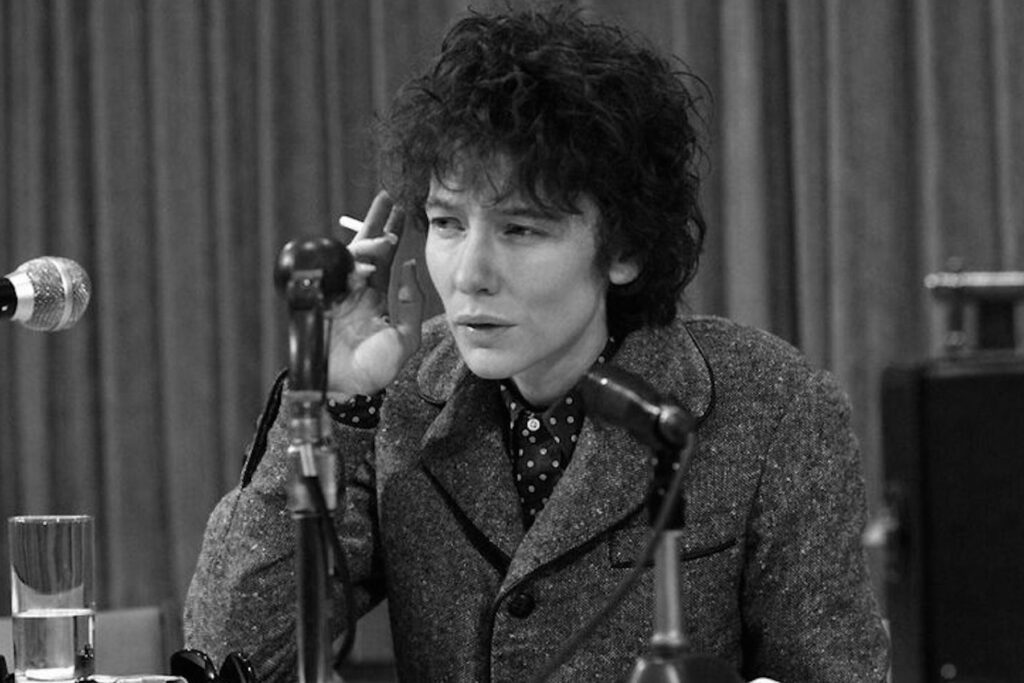
I’m Not There shatters the conventions of the music biopic genre, offering a kaleidoscopic view of Bob Dylan that’s as complex and enigmatic as the man himself. Dylan’s life is boldy reimagined as a series of intersecting vignettes, each featuring a different actor portraying a distinct facet of Dylan’s persona.
This innovative approach mirrors the ever-evolving nature of folk-rock, a genre Dylan helped define and continually reinvented. Cate Blanchett’s portrayal of Dylan during his electric phase is particularly striking, capturing the controversy and artistic upheaval of a pivotal moment in music history.
The film delves into the heart of folk-rock, showcasing how the genre became a vehicle for storytelling, protest, and personal expression. By avoiding a straightforward narrative, I’m Not There invites viewers to engage with Dylan’s legacy on a deeper level, reflecting the way his music continues to be interpreted and reinterpreted by generations of listeners.
Parody: Weird: The Al Yankovic Story (2022)

Weird: The Al Yankovic Story turns the music biopic genre on its head, much like Weird Al himself did with popular music. This film is a meta-commentary on both the artist’s career and the nature of musical parody itself.
Daniel Radcliffe’s portrayal captures the artist’s quirky charm while also poking fun at the tropes of tortured musical geniuses often seen in biopics. The film explores how Yankovic’s unique approach to music – taking familiar melodies and injecting them with unexpected humor – challenged the very notion of what popular music could be.
Through its exaggerated storyline and self-aware humor, Weird delves into the cultural impact of musical parody. Yankovic’s work not only entertained but also served as a form of musical criticism, holding a funhouse mirror up to the excesses and absurdities of pop culture.
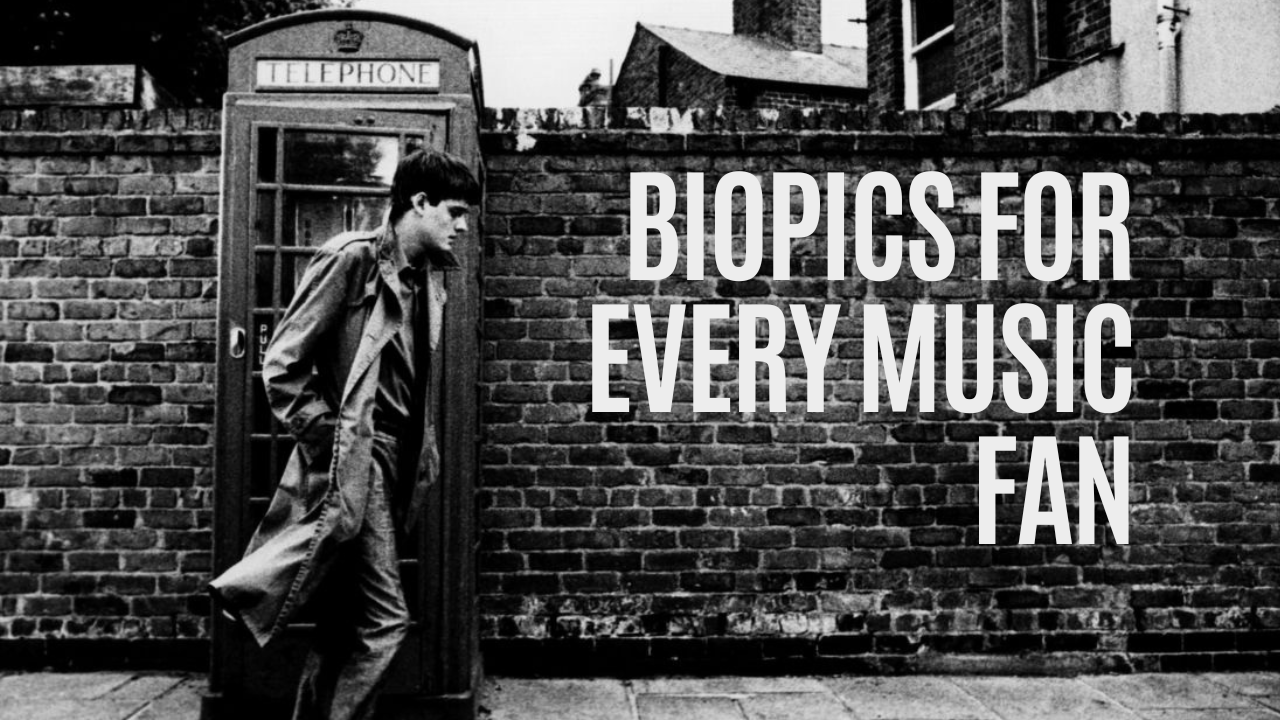
Leave a Reply